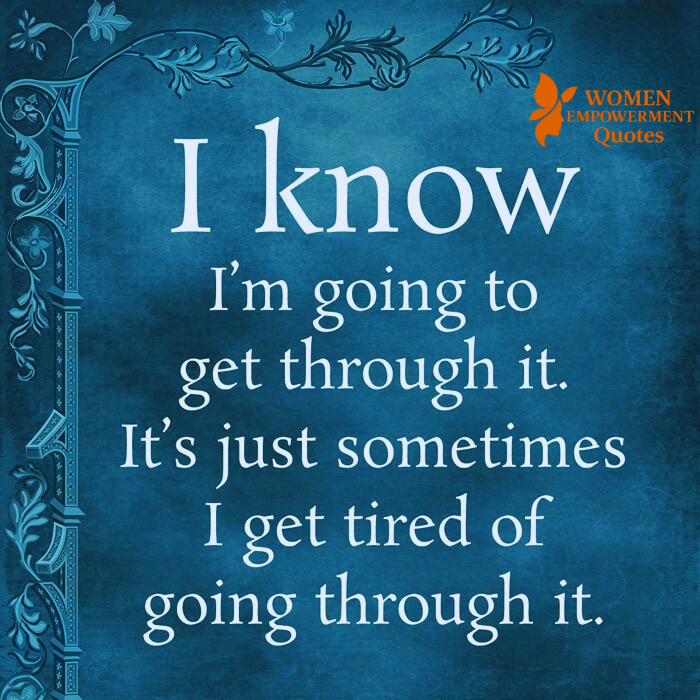
Finding Strength in the Struggle: A Journey Through Fatigue and Faith
There are moments when life weighs heavy on our shoulders — when exhaustion isn’t just physical, but emotional and spiritual too. And in those quiet moments of weariness, we whisper to ourselves, “I know I’m going to get through this. I just get tired of having to keep going through it.”
This simple yet soul-deep truth speaks to the quiet power of resilience. It’s not about having it all together or never feeling broken. Real resilience is about continuing the journey even when we’re limping. It’s about trusting that the strength we need is still within us — even when all we want is rest.
Fatigue is a natural response to life’s persistent challenges. It doesn’t mean we’re weak. It means we’ve been strong for too long without a pause. In those moments, the most courageous thing we can do is admit we’re tired — and give ourselves the grace to breathe, to rest, and to begin again.
What keeps us going isn’t just grit. It’s hope. It’s the small wins we sometimes overlook — the mornings we get out of bed when we don’t feel like it, the moments we choose kindness when anger would be easier, the quiet decision to keep showing up. These are not small things; they are evidence of a resilient heart.
Perspective plays a powerful role in our ability to endure. When we’re deep in the valley, it’s hard to remember the mountaintops. But taking a step back — seeing our pain as part of a bigger, unfolding story — helps us reframe the struggle as a teacher, not a punishment.
And we don’t have to walk through it alone. Whether it’s a friend who listens without fixing, a mentor who believes in us, or simply the quiet presence of someone sitting beside us in our pain — connection reminds us we’re not meant to carry everything by ourselves.
The Gentle Power of Mindfulness and Compassion
To build lasting resilience, we must also learn to treat ourselves with tenderness. Through mindfulness, we learn to simply be — to notice our breath, our thoughts, our feelings — without judgment. And through self-compassion, we learn to speak to ourselves with the same kindness we would offer a loved one who is hurting.
These two practices don’t erase pain, but they give us tools to navigate it more gently. They help us stay present, rather than consumed by the past or afraid of the future. They allow us to see our struggles without shame — and to believe we’re still worthy, even when we’re worn thin.
When we pair mindfulness with self-compassion, we stop fighting our emotions and start listening to them. We stop demanding perfection and start embracing our humanity. And in doing so, we find the courage to keep going — not because we must, but because we can.
A Final Reminder
Resilience isn’t about having unshakable strength — it’s about trusting that we can rebuild each time we break. It’s about believing in our ability to begin again, even when we’re tired. So if today feels heavy, take heart: this chapter is not the end. You are still becoming — stronger, softer, wiser.
Quotes to Carry With You
“The world breaks everyone, and afterward, some are strong at the broken places.” – Ernest Hemingway
“Tough times never last, but tough people do.” – Robert H. Schuller
“What lies behind us and what lies before us are small matters compared to what lies within us.” – Ralph Waldo Emerson
“The struggle itself towards the heights is enough to fill a man’s heart.” – Albert Camus
“The brick walls are not there to keep us out… they are there to show us how badly we want something.” – Randy Pausch
Write Your Prayer